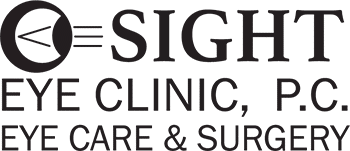When Does My Child Need New Glasses?
Children grow, and they grow fast. Your clothing and shoes budget may be growing just as quickly!
However, eyes also grow and change, too. And as young eyes change in size and shape, so too can the way they take in light and process the visual world around them.
What this means is that, if your child has already received their first pair of glasses, it will very likely not be their last. We are not just talking about getting larger frames every so often to fit their head (and maybe have the latest Popular Thing design). We are also referring to updating their prescriptions to ensure their vision remains clear as well.
How Do a Child’s Eyes Typically Change?
Not every child’s eyesight is the same, of course. Some children will need glasses earlier in life, while others may need glasses and only have their eyesight change minimally over the years. It’s still important to have a general idea of how things tend to change, however, so you know what you may expect.
Let’s use a standard condition as an example: nearsightedness, also known as myopia. This is caused when the cornea is either too curved or the general shape of the eye is longer than it ideally should be. This causes light to be focused too far in front of the retina, which contains the nerves that process vision. The result is blurry vision when looking at far-away objects.
Nearsightedness may develop as early as elementary school. Glasses may be prescribed at this time.
As a child grows, so too does the eye—and the way it positions the light coming into it. In most cases, these changes will make vision worse, with light being focused further and further in front of the retina. Early adolescence, with its “growth spurts,” can affect the eyes as well, and the most rapid worsening of nearsightedness is typically seen around this time.
As we reach adulthood—in our late teens and early 20s—changes in eyesight tend to slow down a great deal as the eyes become fully developed.
Just how fast can eyesight (and, in turn, the prescription needed for corrective lenses) change? It is not uncommon for a child to need an adjustment to their prescription every year, or even every 8-10 months.
Please note again that different children will have different conditions that may affect their vision, or the structures of their eyes may change at different rates. It is unlikely even in faster-moving cases that there is something underlying that is causing degeneration of your child’s vision, but regular checkups are still crucial to keeping on top of matters.
When and How Often Should My Child’s Eyes Be Examined?
Pediatricians perform vision screening, and if there is any question of a refractive error, they will refer a child for a comprehensive eye exam. Any child complaining of difficulty seeing in school should also be examined. If you are seeing possible signs of impaired vision in your child, or they come to you themselves with complaints of the same, they should be seen by an eye care professional.
The truth, though, is that children do not always know how to come to you and express a problem, are scared to admit it, or do not even know they may have one. Even a child who has already been prescribed corrective lenses might not be aware at first that their eyesight is changing.
A child who has already received glasses or contacts should have a professional eye examination at least once per year. We may recommend even more frequent appointments depending on additional symptoms or the rate we are finding your child’s eyes changing (and again, please never be afraid to break schedule if you start seeing signs of anything out of the ordinary sooner!).
Continued vision screenings at school and with their primary care doctor usually suffice for kids with normal, uncorrected vision. If any question or doubt arises, your child should be seen by an eye doctor.
Stay Up to Date on Your Child’s Eye Care
Whether your child already has glasses or remains lens free, it is still very important to keep eye health on the front burner. It’s not just about standard vision correction, but identifying other potential problems before they have a chance to develop into something worse.
If you have any questions about your child’s eye and vision health, never hesitate to give us a call. Our doctors enjoy the opportunity to work with kids.
Schedule an appointment with our office by calling (616) 772-2020. If you would rather contact us electronically, you’re more than welcome to do so! Fill out the online contact form on our website and a member of our staff will get back to you.
